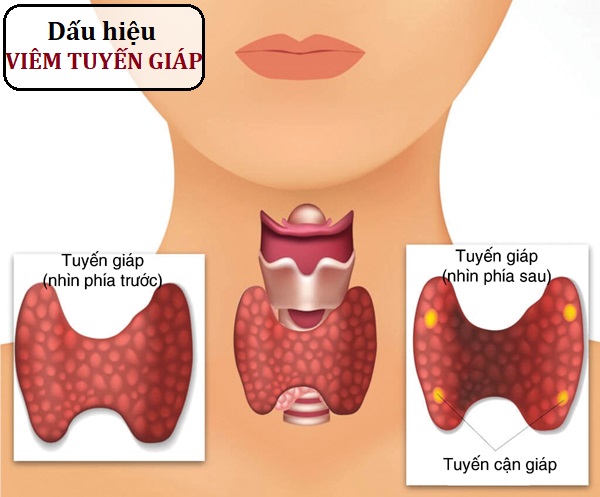Thyroiditis is a general term that refers to inflammation of the thyroid gland. This condition can encompass a variety of disorders that cause thyroid inflammation, each with distinct causes and symptoms. The thyroid gland, located in the front of the neck, plays a crucial role in regulating metabolism through hormone production. When inflamed, it can lead to either hyperthyroidism (excessive thyroid hormone production) or hypothyroidism (insufficient thyroid hormone production).
Causes of Thyroiditis
The causes of thyroiditis are varied and can include:
- Autoimmune Diseases: Hashimoto’s thyroiditis and Graves’ disease are common autoimmune disorders where the body’s immune system attacks the thyroid gland.
- Infections: Bacterial or viral infections can lead to thyroid inflammation.
- Medications: Certain medications can induce thyroiditis as a side effect.
- Radiation: Radiation therapy for cancer can sometimes cause thyroiditis.
- Trauma: Physical injury to the thyroid gland can result in inflammation.

Diagnosis and Symptoms of Thyroiditis
Symptoms of Thyroiditis: The symptoms of thyroiditis depend on the type and stage of the inflammation. Common symptoms include:
- Pain and Tenderness: Pain in the thyroid region, which can extend to the jaw or ears.
- Swelling: Visible swelling of the thyroid gland (goiter).
- Hyperthyroid Symptoms: Weight loss, rapid heartbeat, anxiety, and tremors during the hyperthyroid phase.
- Hypothyroid Symptoms: Fatigue, weight gain, cold intolerance, and depression during the hypothyroid phase.
- General Symptoms: Fever, muscle aches, and a sore throat.
Methods of Diagnosing Thyroiditis: Diagnosing thyroiditis involves a combination of clinical evaluation and diagnostic tests:
- Physical Examination: A doctor will check for swelling, tenderness, and any nodules in the thyroid gland.
- Blood Tests: These tests measure levels of thyroid hormones (T3 and T4) and thyroid-stimulating hormone (TSH) to assess thyroid function. Antibody tests can also detect autoimmune thyroiditis.
- Imaging Tests: Ultrasound of the thyroid can help visualize inflammation, nodules, or other abnormalities.
- Radioactive Iodine Uptake Test: This test measures how much iodine the thyroid absorbs, which can help distinguish between different types of thyroiditis.
Thyroiditis Treatment
Treatment Methods for Thyroiditis: The treatment for thyroiditis varies depending on the type and severity of the condition:
- Medications:
- Anti-inflammatory Drugs: Nonsteroidal anti-inflammatory drugs (NSAIDs) or corticosteroids can reduce inflammation and pain.
- Beta-Blockers: These can help manage symptoms of hyperthyroidism such as rapid heartbeat and tremors.
- Thyroid Hormone Replacement: For hypothyroidism, synthetic thyroid hormones like levothyroxine are used to restore normal hormone levels.
- Surgery: In rare cases where there is significant damage or large nodules, part or all of the thyroid gland may need to be surgically removed.
- Antibiotics or Antivirals: If the thyroiditis is caused by an infection, appropriate antimicrobial therapy may be necessary.
Choosing the Appropriate Treatment Method
The choice of treatment depends on several factors, including the type of thyroiditis, the severity of symptoms, and the underlying cause. A tailored approach is essential for effective management:
- Subacute Thyroiditis: Often managed with pain relief and anti-inflammatory medications, as it typically resolves on its own.
- Chronic Thyroiditis (Hashimoto’s): Requires long-term thyroid hormone replacement therapy.
- Acute Thyroiditis: May require antibiotics for bacterial infections and drainage of abscesses if present.
Post-Treatment Care and Prevention of Thyroiditis
Care After Thyroiditis Treatment: After treatment, ongoing care is crucial to monitor thyroid function and prevent recurrence:
- Regular Follow-Ups: Periodic blood tests to monitor thyroid hormone levels.
- Medication Management: Ensuring proper dosage and adherence to thyroid hormone replacement therapy.
- Healthy Lifestyle: Maintaining a balanced diet, regular exercise, and stress management can support overall thyroid health.
Measures to Prevent Thyroiditis: While not all types of thyroiditis can be prevented, certain measures can reduce the risk:
- Avoid Excessive Iodine Intake: Both deficiency and excess iodine can trigger thyroid problems.
- Manage Autoimmune Conditions: Regular monitoring and management of autoimmune diseases can help prevent thyroiditis.
- Infection Control: Timely treatment of infections can prevent them from spreading to the thyroid gland.
Thyroiditis is a condition that can significantly impact an individual’s quality of life if left untreated. Early diagnosis and appropriate treatment are key to managing symptoms and preventing complications. If you suspect you have symptoms of thyroiditis, such as neck pain, swelling, or changes in weight and energy levels, it is crucial to consult with a healthcare professional for proper evaluation and management.
In Vietnam, if you need assistance or consultation regarding thyroiditis, you can reach out to Dr. Tú Tuyến Giáp, a renowned specialist in thyroid disorders. Don’t hesitate to seek medical advice or call the hotline if you have any concerns about your thyroid health. Taking proactive steps towards diagnosis and management can help alleviate symptoms and ensure better thyroid health.
Treatment of Thyroid Tumors with Radiofrequency Ablation (RFA): Effectiveness and Advantages
